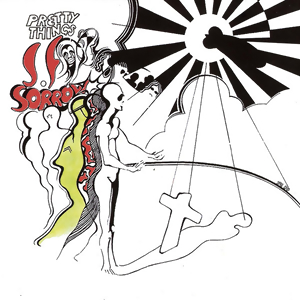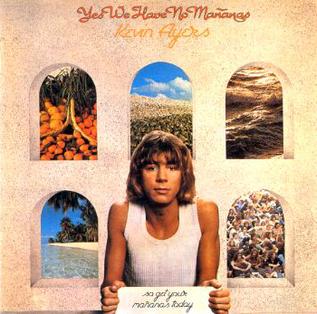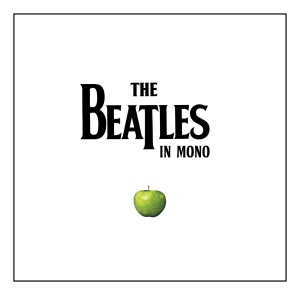Related Research Articles

Abbey Road Studios is a recording studio at 3 Abbey Road, St John's Wood, City of Westminster, London, England. It was established in November 1931 by the Gramophone Company, a predecessor of British music company EMI, which owned it until Universal Music Group (UMG) took control of part of it in 2013. It is ultimately owned by UMG subsidiary Virgin Records Limited.
The Beatles' bootleg recordings are recordings of performances by the Beatles that have attained some level of public circulation without being available as a legal release. The term most often refers to audio recordings, but also includes video performances. Starting with vinyl releases in the 1970s, through CD issues in the late 1980s, and continuing with digital downloads starting in the mid 1990s, the Beatles have been, and continue to be, among the most bootlegged artists.

Mastering, a form of audio post production, is the process of preparing and transferring recorded audio from a source containing the final mix to a data storage device, the source from which all copies will be produced. In recent years digital masters have become usual, although analog masters—such as audio tapes—are still being used by the manufacturing industry, particularly by a few engineers who specialize in analog mastering.

Kevin Ayers was an English singer-songwriter who was active in the English psychedelic music movement. Ayers was a founding member of the psychedelic band Soft Machine in the mid-1960s, and was closely associated with the Canterbury scene. He recorded a series of albums as a solo artist and over the years worked with Brian Eno, Syd Barrett, Bridget St John, John Cale, Elton John, Robert Wyatt, Andy Summers, Mike Oldfield, Nico and Ollie Halsall, among others. After living for many years in Deià, Mallorca, he returned to the United Kingdom in the mid-1990s before moving to the south of France. His last album, The Unfairground, was released in 2007. The British rock journalist Nick Kent wrote: "Kevin Ayers and Syd Barrett were the two most important people in British pop music. Everything that came after came from them."

Stormbringer is the ninth studio album by the English rock band Deep Purple, released in November 1974 and the second studio album to feature the Mk III lineup including vocalist David Coverdale and bassist/vocalist Glenn Hughes.

Made in Japan is a double live album by English rock band Deep Purple, recorded during their first tour of Japan in August 1972. It was originally released in December 1972, with a US release in April 1973, and became a commercial and critical success.

Abbey Road is the eleventh studio album by the English rock band the Beatles. It is the last album the group started recording, although Let It Be was the last album completed before the band's break-up in April 1970. It was mostly recorded in April, July and August 1969, and was released on 26 September 1969 in the United Kingdom, and 1 October 1969 in the United States, reaching number one in both countries. A double A-side single from the album, "Something" / "Come Together" was released in October, which also topped the charts in the US.

Ken Scott is a British record producer and engineer known for being one of the five main engineers for the Beatles, as well as engineering Elton John, Pink Floyd, Procol Harum, Mahavishnu Orchestra, Duran Duran, the Jeff Beck Group and many more.

S. F. Sorrow is the fourth album by the English rock band Pretty Things. Released in 1968, it is known as one of the first rock operas ever released. Based on a short story by singer Phil May, the album is structured as a song cycle telling the story of a main character "Sebastian F. Sorrow", from his birth, through love, war, tragedy, madness, and his disillusionment with old age.

Alan Parsons is an English audio engineer, songwriter, musician and record producer.
Mike Hedges is a British audio producer/engineer best known for his work with The Cure, Siouxsie and the Banshees, and Manic Street Preachers. During his career, Hedges has worked with an eclectic roster of artists ranging from rock and pop acts such as U2, Dido, Travis, Texas, The Beautiful South, and Everything but the Girl, to cult-indie band The Cooper Temple Clause and classically oriented projects, The Priests and Sarah Brightman. His creative input and influence dramatically impacted the trajectories of bands such as the Cure, The Associates, Manic Street Preachers, and Travis.

The studio practices of the Beatles evolved during the 1960s and, in some cases, influenced the way popular music was recorded. Some of the effects they employed were sampling, artificial double tracking (ADT) and the elaborate use of multitrack recording machines. They also used classical instruments on their recordings and guitar feedback. The group's attitude towards the recording process was summed up by Paul McCartney: "We would say, 'Try it. Just try it for us. If it sounds crappy, OK, we'll lose it. But it might just sound good.' We were always pushing ahead: Louder, further, longer, more, different."

Recording The Beatles is a book by Kevin Ryan and Brian Kehew, published by Curvebender Publishing in September 2006. Written over the course of a decade, the book addresses the technical side of the Beatles' sessions and was written with the assistance of many of the group's former engineers and technicians, chief among them Peter K. Burkowitz, designer of the REDD mixing console.

Yes We Have No Mañanas is the seventh studio album by Kevin Ayers, released in June 1976. This LP marked Kevin Ayers' return to the leftfield Harvest label. Producer Muff Winwood employed a straightforward pop production that clipped some of Ayers' usual eccentricities from the tapes.

Day by Day with Cilla is the title of Cilla Black's seventh solo studio album released in 1973 by Parlophone Records. The album marked the end of a significant era in Black's recording career as it was her last project to be produced by George Martin, who had worked on all of her recordings since her 1963 debut. It was also Black's final record released on the Parlophone Records label.

The Beatles in Mono is a boxed set compilation comprising the remastered monaural recordings by the Beatles. The set was released on compact disc on 9 September 2009, the same day the remastered stereo recordings and companion The Beatles were also released, along with The Beatles: Rock Band video game. The remastering project for both mono and stereo versions was led by EMI senior studio engineers Allan Rouse and Guy Massey. The release date of 09/09/09 is related to the significance to John Lennon of the number nine.

Peter Vince was an English sound engineer, producer and operations manager at Abbey Road Studios.
A tape operator or tape op, also known as a second engineer, is a person who performs menial operations in a recording studio in a similar manner to a tea boy or gopher. They may act as an apprentice or an assistant to a recording engineer and duties can consist of threading audio tape, setting up microphones and stands, configuring MIDI equipment and cables, and sometimes pressing the relevant transport controls on the recorder or digital audio workstation. Abbey Road Studios always assigned at least one tape op to each recording session.
Peter Doell is an American recording and mastering engineer known for his work with Miles Davis, Toto, Céline Dion and The Beach Boys. Doell has been a staff engineer at Capitol Studios, Sunset Sound Recorders and Universal Mastering Studios West. His film and TV work includes Road To Perdition, Black Hawk Down and Monsters, Inc., American Idol, The Voice and Empire.
Peter Cobbin is an Australian audio engineer and producer. He served as chief engineer of Abbey Road Studios from 1995 to the mid-2010s, during which he became the first engineer to remix music by the Beatles, remixing their 1999 compilation album Yellow Submarine Songtrack. He has recorded and mixed scores for a number of films, including The Lord of the Rings: The Return of the King (2002), several entries in the Harry Potter and Wizarding World franchise, and the Hobbit trilogy (2012–14).
References
- 1 2 Jackson, Blair (1 July 2002). "Abbey Road at 70". Mix Magazine. Penton Media. Archived from the original on 24 June 2009. Retrieved 28 February 2009.
- 1 2 "Peter Mew's Biography". Abbey Road Studios website. Retrieved 28 February 2009.
- ↑ "Kevin Ayers names Peter Mew as "the best engineer I've ever worked with"". Abbey Road website. September 2008. Archived from the original on 10 February 2009. Retrieved 28 February 2009.
- ↑ "Abbey Road's Mew Retires". ProSoundNetwork. NewBay Media. 10 September 2013. Retrieved 28 November 2016.